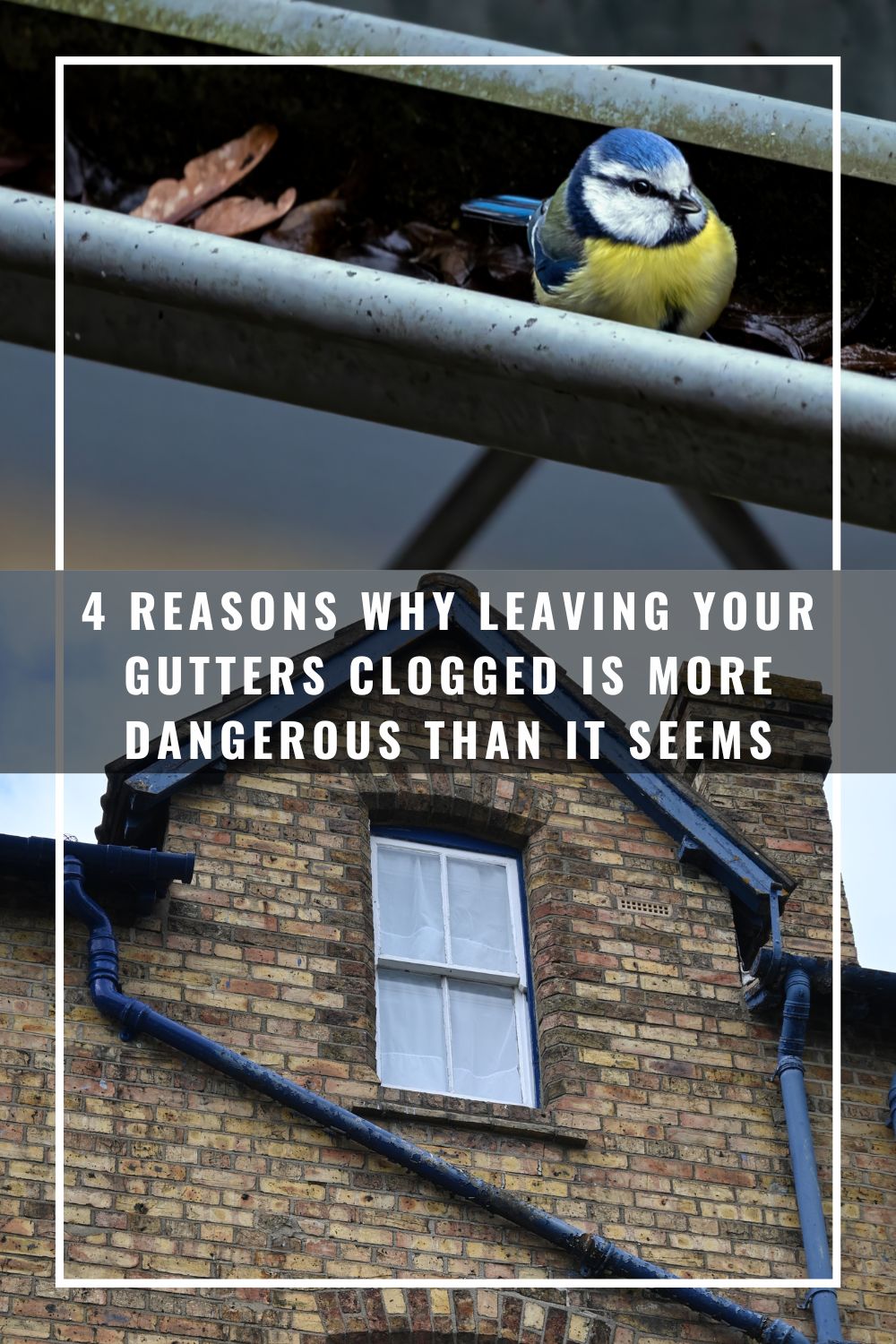When a person thinks of clogged gutters and the damage they can cause to a home, the roof and foundation often come to mind. However, clogged gutters cause numerous other problems for a homeowner. The following are some problems a person may not know can be caused by gutters that don’t drain properly.
Driveway and Sidewalk Damage
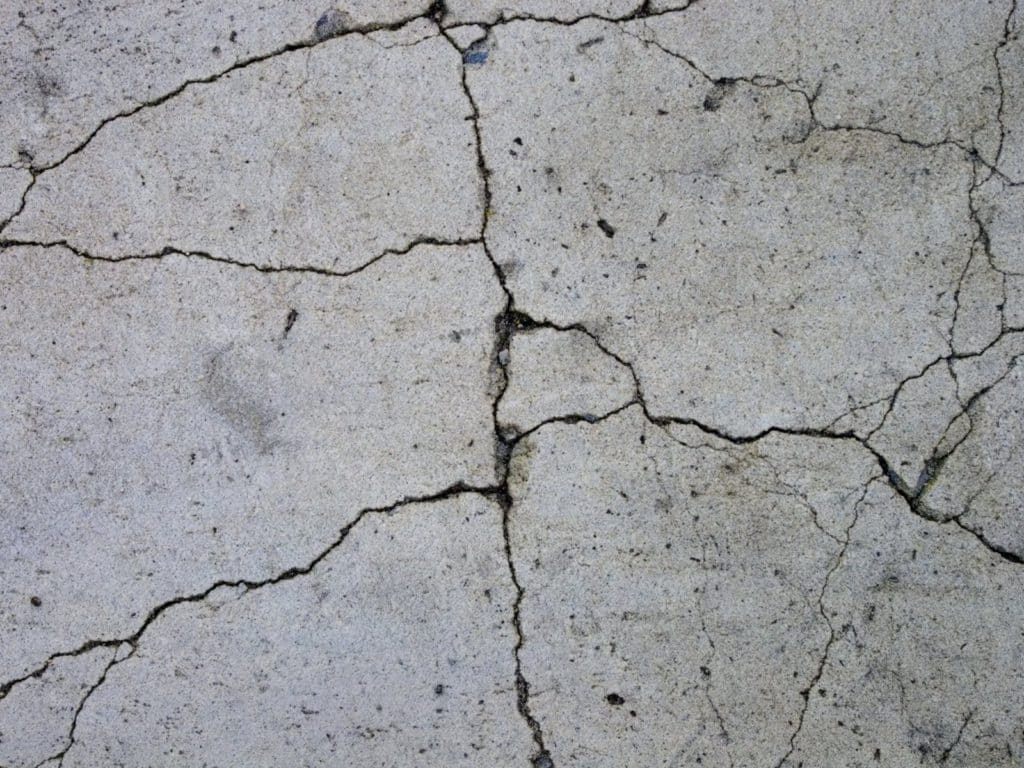
Driveways and sidewalks are expected to endure significant wear and tear. People often need to pay more attention to these landscape features to use them daily. However, when the driveway or sidewalk is damaged, and somebody slips and falls, they quickly realize they have a problem that needs to be addressed immediately.
Clogged gutters may lead to uneven sidewalks and driveways. What do gutters have to do with these features?
Poor drainage is a key reason for damaged driveways and sidewalks. While the materials used to create these features are designed to withstand the elements, excessive water can harm them. Clogged gutters may deposit water sideways and driveways rather than directing this water away from home.
In addition, drain spouts need to move water away from these features so they don’t sustain damage. If water remains on and around sidewalks and driveways, soil washout and erosion become concerns. If enough of the soil supporting the driveway or sidewalk shifts, the homeowner might find the sidewalk or driveway is sinking or the slabs are no longer even.
Uneven and sinking slabs may lead to a surface that is a hazard. A person could trip over a slab and be injured. In addition, the water may pool in uneven areas and serve as a hazard. Not only could someone slip on this water, but it serves as the perfect place for mosquitoes and other pests to breed. A comprehensive gutter cleaning can prevent these issues.
Pest Infestations
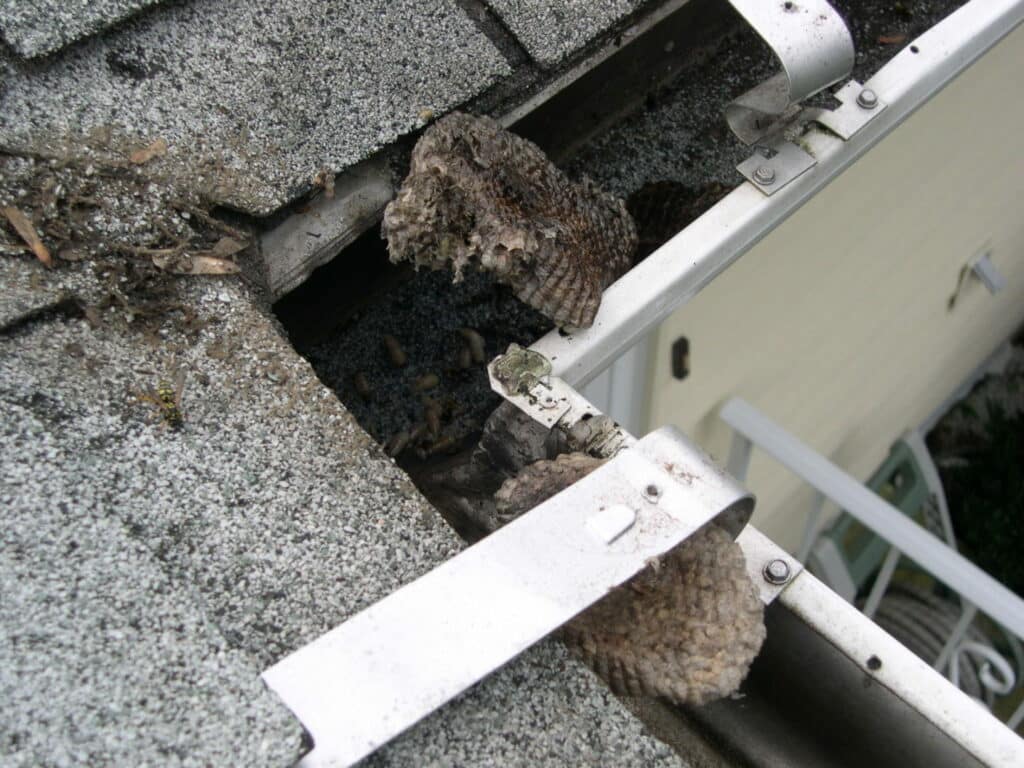
Clogged gutters attract a variety of pests for several reasons. These critters will find everything they need in a gutter retaining water. This includes moisture to keep them hydrated and a food source like acorns, pine needles, and more.
Furthermore, a clogged gutter provides the pests with safety and shelter. When they build a nest in a gutter, there are fewer directions from which a predator can attack. They feel safe and secure in their new home.
Many animals like to make their homes in clogged gutters. Mice, for example, reside in a gutter before moving into the home’s attic as the weather turns colder. Birds move into a clogged gutter because they have a ready supply of twigs, leaves, and other materials that they can use to make a nest.
Stinging insects are another pest found in clogged gutters, although they will also make their home in a free and clear gutter. Mosquitoes and snakes are two additional animals that make a home in a gutter.
Minimize the risk of a pest infestation by keeping the gutters clean. As these pests can damage a home, the sooner the problem is resolved, the safer the home will be for both the structure and the residents.
Fire Hazard
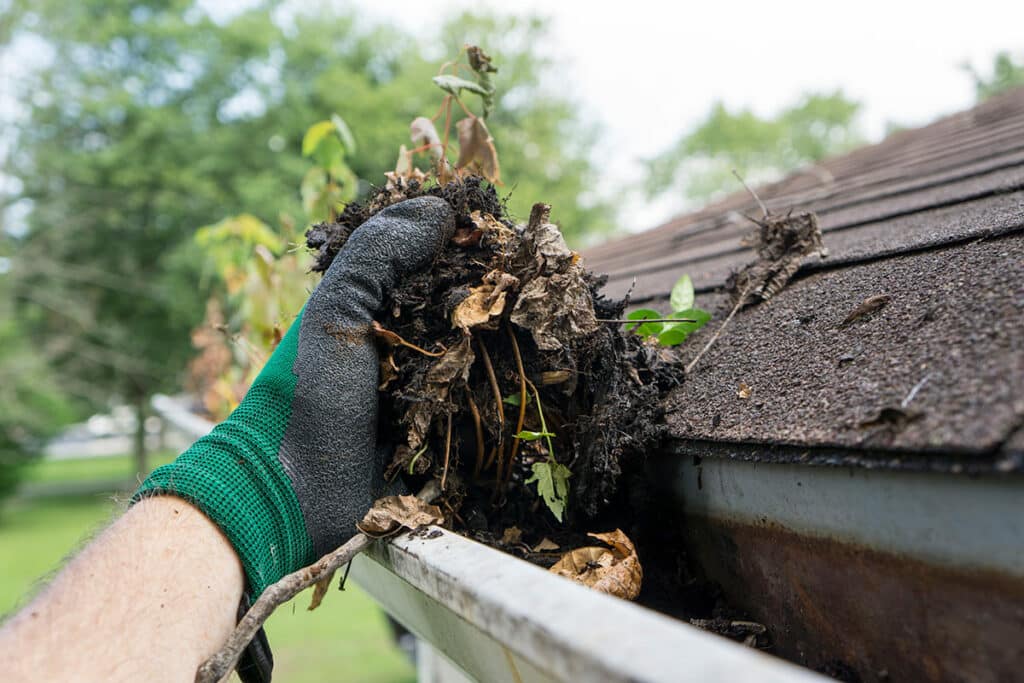
Most people wouldn’t think clogged gutters are a fire hazard. Gutters collect more than water. They also hold leaves, twigs, pine needles, and more. This plant debris is what makes a clogged gutter a fire hazard.
Any plant material in the gutter dries out during periods of little rain. It then serves as an effective fuel for a fire. Although this type of fire isn’t common, nobody wants to be the one who learns their home burned down because they neglected to clean the gutters.
Imagine the hot sun beating down on metal gutters. This heats the gutter. The dried leaves may spark if reflected sunlight converges on the gutter correctly. This fire will then spread to the roof and the home itself.
The lighting of fireworks may also lead to a fire caused by debris in the gutter. These fireworks often send sparks and embers into the air, just as a bonfire or barbecue on the property might. It only takes one small ember to make its way into the clogged gutter, and a fire could break out.
Sadly, people often don’t realize the home is on fire until significant damage has been done. They attribute the burning smell to the fireworks, the bonfire, or their barbecue. When they realize the home is on fire, they can only move away from the residence and hope the fire department gets there in time to save the home and prevent injuries.
Clean the gutters regularly to prevent a fire hazard. Most people remain unaware of this danger, which needs to change. Until it does, this is the best way to protect the home and those who live within.
Landscaping Damage
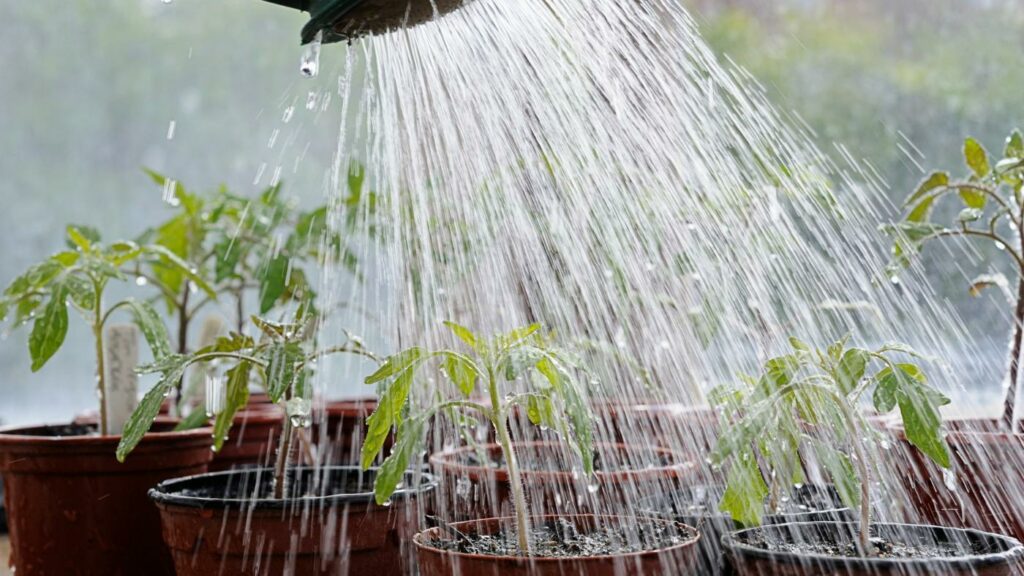
When the gutters are clogged and water doesn’t move away from the home as it should, the landscaping may be damaged. Plants, flowers, and trees need water to survive. However, water from clogged gutters is often more than it can handle.
In addition, the excess water can wash mulch away, and pests may be attracted to the home. Once they arrive, they could reside in the clogged gutters, as previously mentioned.
If the landscape is damaged, the curb appeal of the home declines. The homeowner must clean the gutters and remove any dead or dying landscape features. They then have the expense of replacing these features. If they decide not to replace them, a new landscape plan must be developed.
These are only a few of the many problems caused by clogged gutters. Others include a wet basement, fascia damage, and a higher risk of ice dams.
Although gutters may not add to a home’s curb appeal, they do an important job and must be cared for properly. Cleaning the gutters is one task that many homeowners feel uncomfortable tackling. Please don’t leave them clogged. Call a professional to do this work and protect the home and all living there.
How to Clean Clogged Gutter Downspout?
Cleaning a clogged gutter downspout is an essential home maintenance task that helps prevent water damage, foundation issues, and other problems. Here’s a step-by-step explanation of how to clean a clogged gutter downspout:
1. Remove Debris from Gutters: Start using your scoop or trowel to remove leaves, twigs, and other debris from the gutters. Work your way along the gutter, collecting the debris in your bucket.
2. Inspect the Downspout: Once you’ve cleared the gutter of surface debris, inspect the downspout for clogs. You may notice the water isn’t flowing freely or hear a gurgling sound.
3. Use a Downspout Snake or Plumbing Auger: If you encounter a clog in the downspout, use a downspout snake or plumbing auger. Insert it into the downspout and slowly rotate it while pushing it down. This should help break up and dislodge the clog.
4. Flush with Water: After breaking up the clog, use your garden hose to flush the downspout. Start at the top and work your way down. The force of the water should help remove any remaining debris.
5. Recheck and Repeat: Recheck the downspout and gutter to ensure there are no more clogs. If necessary, repeat the process until the water flows freely.

